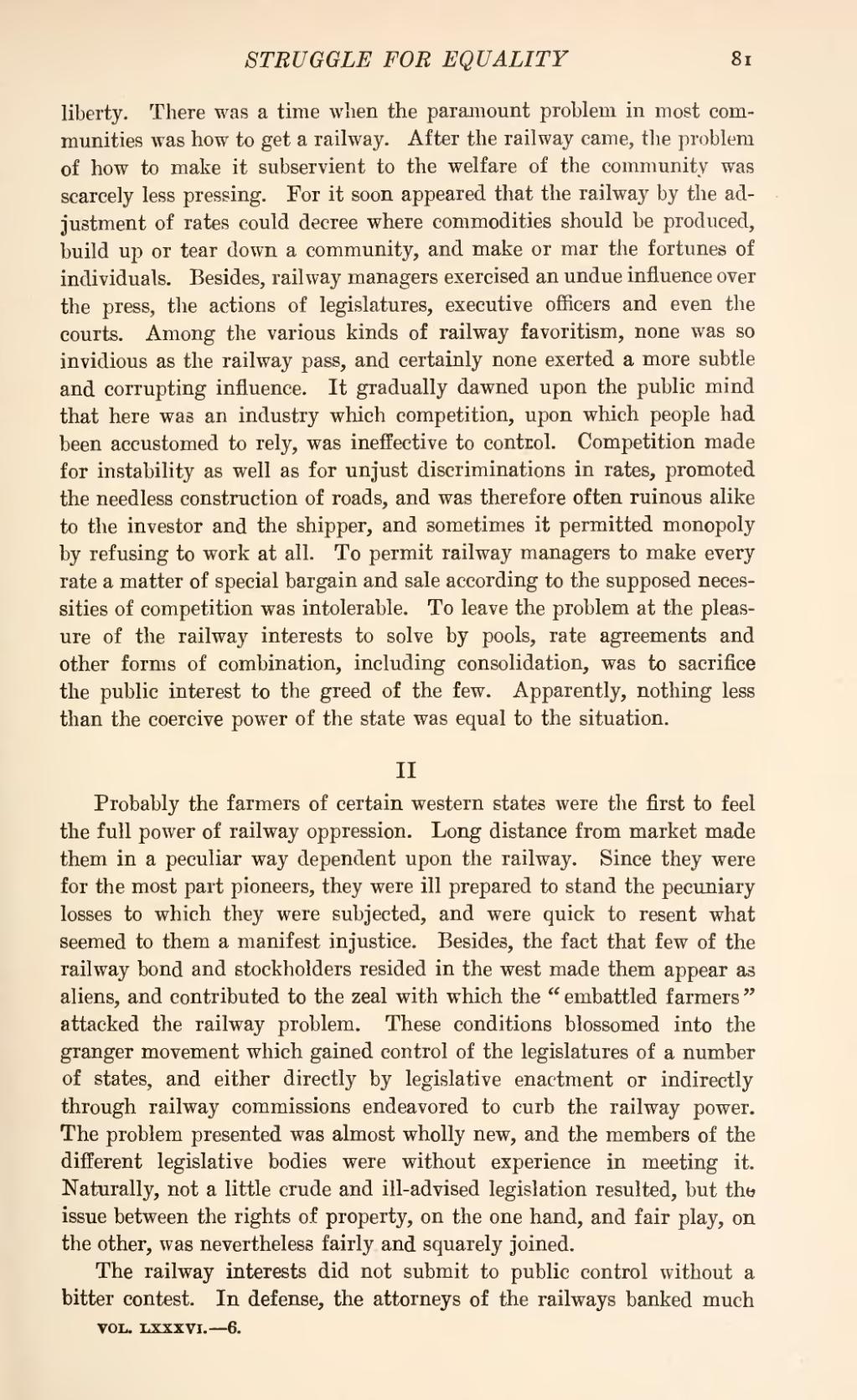liberty. There was a time when the paramount problem in most communities was how to get a railway. After the railway came, the problem of how to make it subservient to the welfare of the community was scarcely less pressing. For it soon appeared that the railway by the adjustment of rates could decree where commodities should be produced, build up or tear down a community, and make or mar the fortunes of individuals. Besides, railway managers exercised an undue influence over the press, the actions of legislatures, executive officers and even the courts. Among the various kinds of railway favoritism, none was so invidious as the railway pass, and certainly none exerted a more subtle and corrupting influence. It gradually dawned upon the public mind that here was an industry which competition, upon which people had been accustomed to rely, was ineffective to control. Competition made for instability as well as for unjust discriminations in rates, promoted the needless construction of roads, and was therefore often ruinous alike to the investor and the shipper, and sometimes it permitted monopoly by refusing to work at all. To permit railway managers to make every rate a matter of special bargain and sale according to the supposed necessities of competition was intolerable. To leave the problem at the pleasure of the railway interests to solve by pools, rate agreements and other forms of combination, including consolidation, was to sacrifice the public interest to the greed of the few. Apparently, nothing less than the coercive power of the state was equal to the situation.
II
Probably the farmers of certain western states were the first to feel the full power of railway oppression. Long distance from market made them in a peculiar way dependent upon the railway. Since they were for the most part pioneers, they were ill prepared to stand the pecuniary losses to which they were subjected, and were quick to resent what seemed to them a manifest injustice. Besides, the fact that few of the railway bond and stockholders resided in the west made them appear as aliens, and contributed to the zeal with which the "embattled farmers" attacked the railway problem. These conditions blossomed into the granger movement which gained control of the legislatures of a number of states, and either directly by legislative enactment or indirectly through railway commissions endeavored to curb the railway power. The problem presented was almost wholly new, and the members of the different legislative bodies were without experience in meeting it. Naturally, not a little crude and ill-advised legislation resulted, but the? issue between the rights of property, on the one hand, and fair play, on the other, was nevertheless fairly and squarely joined.
The railway interests did not submit to public control without a bitter contest. In defense, the attorneys of the railways banked much
